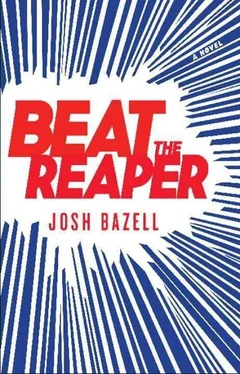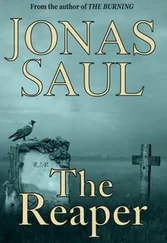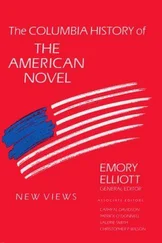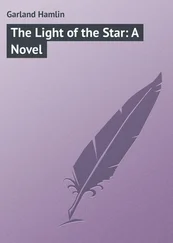“Sometimes Baboo comes along. He never seems to pay attention at all. He’s usually got some date, in fact. Spends the whole night with his face in her boobs or else checking his voice mail. At the end of the evening, though, when it’s time to guess who committed the crime, he’s always right.”
“No kidding,” I said.
“None,” Freed said. “Anyway, he’s the best judge of character I know. And I’ve known a few.”
He didn’t say, “Like Jack and Bobby Kennedy,” though he could have.
He said, “Baboo called you ‘an interesting and possibly redeemable individual.’ By which I assume he meant not only that you deserved a second chance, but that you probably had enough information to trade to earn one.”
I shook my head. I already felt like Freed was someone I didn’t want to disappoint, and I didn’t want to lie to him, either. “I barely talked to that guy. And I’m not willing to testify,” I said.
“Okay. It can wait. But not for long. Speed the plow. The opportunity won’t keep forever.”
“I’m not interested in entering protection unless I have to. I’m not ready for it.”
“I don’t know about that,” Freed said. “Protection’s not what you think. It’s not about becoming someone else. It’s about becoming who you were meant to be in the first place.”
“That’s a little deep for me,” I said.
“I don’t believe that for a second,” he said. “Think about what your grandfather would have wanted.”
“My grandfather? ”
“I’m sorry to get personal. But I think I know what he thought of you, and what he’d think about you being here, and I think you know too.”
“Do you do this to all potential witnesses?” I said.
“Absolutely not,” he said. “But Baboo Marmoset thinks you can take it.”
“He doesn’t even know me!”
Freed shrugged. “The man has a gift. He probably knows you better than you know yourself.”
“That wouldn’t take much,” I said.
“No it wouldn’t, toughguy,” Freed said. He swung his legs off the desk and stood up. “But I think you know what this mob stuff is worth. It gives you a couple of headwaiters kissing your ass because you pay them and they’re afraid of you, and it takes everything else away. Including that lovely young lady of yours.”
Somehow when he said it, it didn’t bother me. But intellectually I knew better.
“You’re conning me,” I said.
“Takes one to know one,” he said. He opened the door but turned around before he went out. “You know, if I was conning you, I’d say this: Why did the the mob want the Karchers dead?”
“I don’t know anything about that,” I said.
He ignored me. “You saw how isolated the Karchers were. Who could they identify? You think they knew people higher up in the chain?”
I just looked at him.
“They didn’t. They knew people below them. That’s why the mob wanted them gone. So the business itself could keep going, under a different subcontractor.
“I’ll be in touch later. But if I was conning you I’d ask you to think about that, and what your grandfather would have said about it.”
Freed was right about the Karchers, of course. It had occurred to me a million times before.
But that night I slept without my earplugs so I wouldn’t have to think about it.
The trial itself you already know about, you child of Fox News, you. But you have no idea how injuringly boring it was, even to me. The Feds had been running “Operation Russian Doll” for months before I stepped in and fucked things up for them, so there were thousands of financial documents that anyone capable of getting a job in the private sector would have known better than to read to the jury. And which had almost nothing to do with the Italian mafia. Or, as the FBI calls it, “the LCN.”
“LCN” stands for la cosa nostra —“the our thing,” or “the thing of ours.” I have never once heard anyone in the mafia actually say “ la cosa nostra, ” let alone “LCN.” Let alone “ the LCN.” Why would they? It’d be like a bunch of French criminals calling themselves the LJNSQ, for “the le je ne sais quoi. ” [50] Supposedly, FBI agents are still required to say “the LCN” because when J. Edgar Hoover had to explain to the McClellan Committee why he denied for so long that the mafia existed—despite, for example, Hoover’s own tapes of Sam Giancana calling in orders to the floor of the U.S. Senate—he tried to pass the whole thing off as a semantic misunderstanding. Like everyone else had just been using the wrong name.
Anyway, for a while the trial was just a slog. Then, about ten days into opening arguments—right after they played the recording of my 911 call from the gas station, which a speech expert said was my voice “to about eighty-five percent certainty”—the prosecution produced the Mystery Evidence, and the whole thing took off.
The Mystery Evidence, of course, was a skinned, severed hand, which the prosecution said they would prove had once belonged to Tits.
The Hand was disgusting. You had to admit that it looked too delicate to be anything other than female, but also just a little too large to be that of an adolescent Ukrainian girl. And it was easy enough to take the Feds’ word for it that the Hand had been found outside the compound, right near where the car had been parked that they said they were going to prove I had driven away. And that the knife marks all over the Hand made it clear that it had been skinned, and not, say, picked over by some weasels or whatever. [51] 52 By the way, the medical term for something getting skinned, intentionally or otherwise, is “degloving,” but any part of your body with skin can be “degloved.” In the ER, for instance, dicks that have been stuck into vacuum cleaners are perennial favorites.
It was a thing of deep horror. Particularly when the Feds projected it, huge, onto a screen at the front of the courtroom.
Naturally, Ed Louvak objected, but Donovan had been right: although it ran contrary to Brady v. Maryland for the prosecution to have kept the Hand secret from the defense, the judge allowed it into evidence anyway, since it was so grotesque and so likely to generate press coverage. And also, I suppose, because it was the only thing likely to get a conviction.
You have to understand that, relatively speaking, July 2000 was a terrific time to be tried for murder. Five years earlier the O. J. Simpson trial had managed to slander the concept of circumstantial evidence, which up to that point had been the basis for almost every criminal conviction in history. Circumstantial evidence includes everything except physical evidence and direct eyewitness testimony. If you buy a speargun, tell everyone in the bar you’re about to go shoot someone with it, then come back in an hour with the gun but not the spear and say you did it, that’s all just circumstantial evidence. The O.J. trial managed to make even physical evidence look suspect, because any gap in the “chain of custody” made it conceivable the cops had fucked with it.
And eyewitness testimony, by that time, had been under fire for years as being unreliable. Which it is. Though in my case there wasn’t going to be much anyway—just Mike the Grocery Boy, on what he might or might not have seen in his rearview mirror.
The Feds, meanwhile, had barely any physical evidence other than the Hand. There was mud all over the Farm, but none of the footprints in it were large enough to be mine. [52] This was because I had cut the soles off a pair of shoes three sizes too small and glued them to the bottom of some shoes that actually fit me, so that according to the size/depth chart the Feds use to extrapolate body measurements from footprints I was five foot four and three hundred pounds. I don’t flatter myself that this fooled the detectives, but try explaining it to a jury.
Читать дальше










